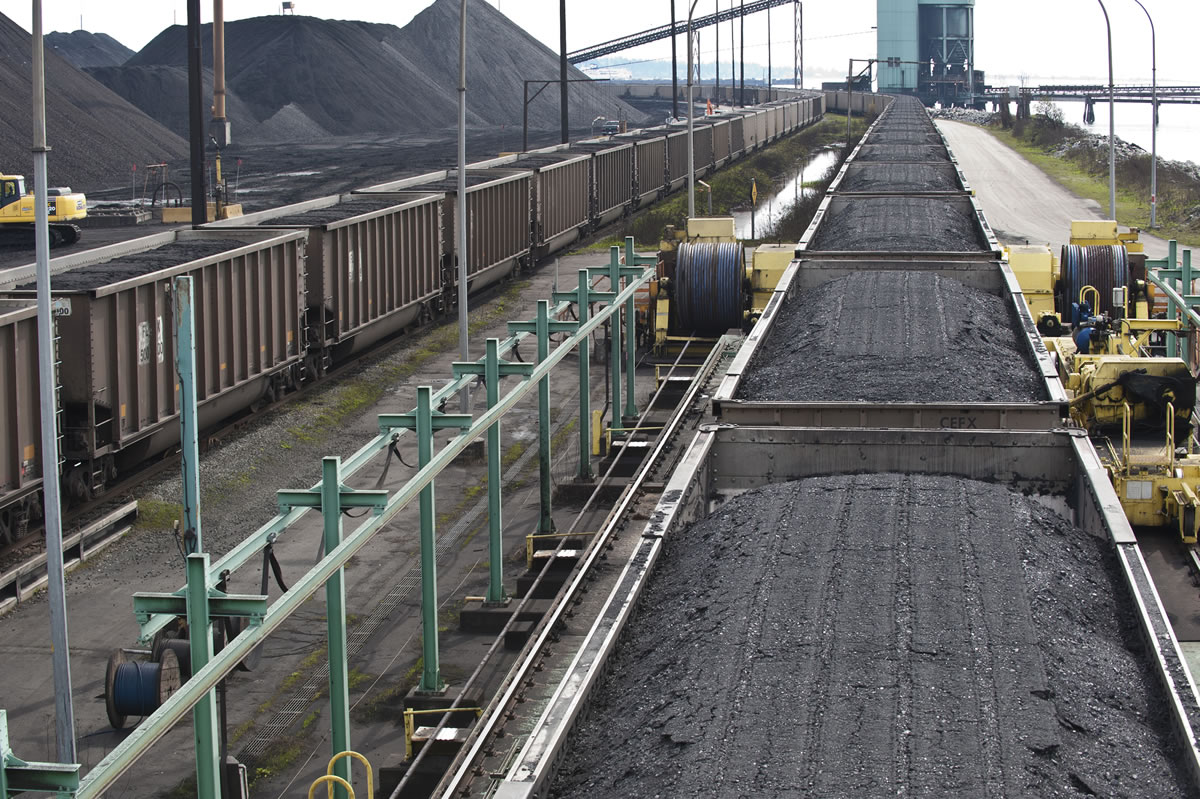The Port of Camas-Washougal Board of Commissioners’ meeting begins at 5 p.m. today at 24 S. A St. in Washougal. Coal train traffic is among six different new business and discussion items on the board’s agenda.
The Port of Camas-Washougal today will discuss whether to officially weigh in on the potential impacts of increased train traffic that may result if plans to export coal from the Pacific Northwest become reality.
Included on the agenda of the port’s three-member Board of Commissioners is a discussion of whether to develop a resolution addressing coal train traffic. No draft resolution has been proposed yet, and no votes are expected today.
Commissioner Bill Ward, who asked to have the issue brought up, said he’d like the port to discuss whether to write and adopt a formal resolution modeled on one recently approved by the Port of Skamania County.
Ward said the resolution wouldn’t necessarily oppose coal exports but would instead echo the concerns about traffic and other impacts raised by the Skamania County port, as well as the city councils of Camas and Washougal.
“I don’t want to presuppose what the commission will adopt,” Ward said. “We know there will be implications in the community, and we certainly want to align ourselves with the interests of the community.”
The port is the latest local government to take up the issue of potential traffic, environmental and policy impacts of proposals to build six coal-exporting facilities in Washington and Oregon to feed energy-hungry countries in Asia.
The Camas-Washougal port’s industrial park has access to rail tracks served by major railroad companies.
Port Executive Director David Ripp said the port sees about three or four trains per week hauling three or four carloads of materials for a handful of rail-dependent tenants. Most of the port’s tenants rely on tractor-trailers, he said.
Ripp said he’s concerned about requests urging the U.S. Army Corps of Engineers to initiate a review of the six coal-export terminals’ cumulative impacts on the environment.
Such a global, or “programmatic” assessment is in contrast with a more limited analysis that examines an individual project’s local impacts. It’s important to make sure projects are environmentally safe and sound, Ripp said, but a programmatic review would set a bad precedent for future transportation and port projects, adding another layer to an already long permitting process.
Ward said it’s important for the port to make clear its position on the matter and to protect everybody’s interests, including the communities that would see increased train traffic. “Just the fact that we are a port and people are going to lump us all together is a good reason to establish our own position,” he said.
Ward said a resolution recently passed by the Port of Skamania County could serve as a model. That resolution urges the “appropriate authorities” to require an environmental impact statement that “identifies and measures the impacts on our community from the significant increase in coal train traffic and that the (Port of Skamania County) be included as a party of record.”
The resolution also requests an assessment of impacts on truck and vehicle traffic from “increased closure of at-grade crossings” and “health and safety impacts related to coal dust” and “increases in diesel emissions.”
Commissioner Mark Lampton said he’s fine with discussing the issue but thinks local city councils — not the port — are better places for people to go with their concerns about environmental or other impacts. “I don’t see us as being that vehicle,” he said. “We don’t have a dog in the fight.”
Said Commissioner Bill Macrae-Smith: “It’s one of those semi-emotional things, but everything deserves a discussion.” He said he’s aware of the traffic, health and other concerns but wants more information. “I think it needs a total airing of the subject.”
Aaron Corvin: http://twitter.com/col_econ; http://on.fb.me/AaronCorvin; 360-735-4518; aaron.corvin@columbian.com




